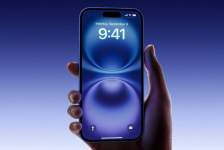iPhone 16 now banned in Indonesia over Apple’s unfulfilled investment commitments By iPhone 16 now

The sale and usage of iPhone 16 models, along with other Apple devices released this fall, such as the Apple Watch Series 10, were prohibited in Indonesia earlier this week by the government. According to The Economic Times, Apple was banned because it did not fulfill some of its investment obligations in the nation.
This prohibition affects both the sale and use of iPhone 16 models, even those that have already been sold, which causes problems for travelers. The following was said by Industry Minister Gumiwang Kartasasmita:
The iPhone 16 is, in my opinion, unlawful if it is capable of functioning in Indonesia. Tell us about it, please.
This embargo is being imposed because the government wants to make Apple keep its investment pledges to the country. Apple has reportedly promised to invest $109 million USD ($1.71 trillion rupiah) in Indonesian infrastructure and local sourcing, but they have only contributed about $95 million USD ($1.48 trillion rupiah).
Due to Apple's $14 million ($230 billion rupiah) error, Indonesia's Ministry of Industry has been unable to provide the appropriate IMEI (international mobile equipment identity) certifications, which are necessary for the devices to be marketed in the nation. Kartasasmita, the minister, added:
The Ministry of Industry is unable to grant permits for the iPhone 16 at this time because Apple still needs to fulfill certain obligations.
The Indonesian government requires international businesses to operate in the country with 40% local content, which is why the investments were made there. Apple has committed to establishing research and development centers, known as Apple academies, around the nation.
As of right now, it's unclear if Apple intends to implement this sales ban.

The sale and usage of iPhone 16 models, along with other Apple devices released this fall, such as the Apple Watch Series 10, were prohibited in Indonesia earlier this week by the government. According to The Economic Times, Apple was banned because it did not fulfill some of its investment obligations in the nation.
This prohibition affects both the sale and use of iPhone 16 models, even those that have already been sold, which causes problems for travelers. The following was said by Industry Minister Gumiwang Kartasasmita:
The iPhone 16 is, in my opinion, unlawful if it is capable of functioning in Indonesia. Tell us about it, please.
This embargo is being imposed because the government wants to make Apple keep its investment pledges to the country. Apple has reportedly promised to invest $109 million USD ($1.71 trillion rupiah) in Indonesian infrastructure and local sourcing, but they have only contributed about $95 million USD ($1.48 trillion rupiah).
Due to Apple's $14 million ($230 billion rupiah) error, Indonesia's Ministry of Industry has been unable to provide the appropriate IMEI (international mobile equipment identity) certifications, which are necessary for the devices to be marketed in the nation. Kartasasmita, the minister, added:
The Ministry of Industry is unable to grant permits for the iPhone 16 at this time because Apple still needs to fulfill certain obligations.
The Indonesian government requires international businesses to operate in the country with 40% local content, which is why the investments were made there. Apple has committed to establishing research and development centers, known as Apple academies, around the nation.
As of right now, it's unclear if Apple intends to implement this sales ban.


